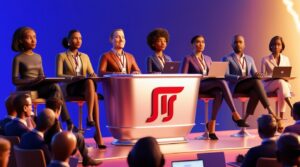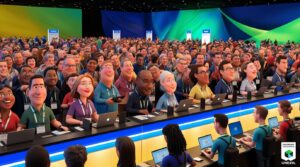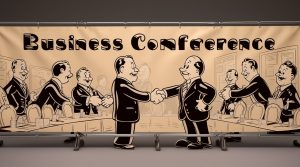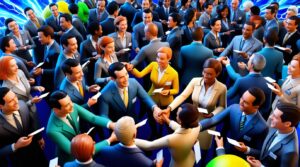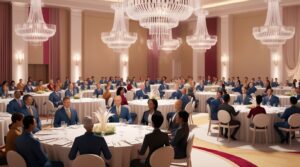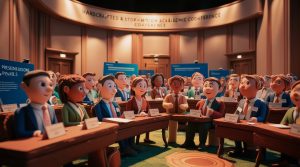What fueled the momentum of the 1960s Civil Rights Movement? Behind many of the era’s transformative moments stood the Southern Christian Leadership Conference—a coalition that combined faith, leadership, and activism. Formed during a turbulent period in American history, this organization emerged as a guiding force for racial justice and civil rights through nonviolent resistance.
Founded in 1957 and spearheaded by Dr. Martin Luther King Jr., the Southern Christian Leadership Conference (SCLC) played a pivotal role in mobilizing communities, influencing policy, and challenging systemic racism across the South and beyond.
The Origins of the Southern Christian Leadership Conference
The Southern Christian Leadership Conference was born out of the success of the Montgomery Bus Boycott in 1955–56. After the boycott’s success, African-American ministers and leaders saw the need for a broader, coordinated civil rights effort.
Key Founding Members:
- Dr. Martin Luther King Jr. – President
- Ralph David Abernathy – Co-founder and key strategist
- Bayard Rustin – Advisor and organizer
- Ella Baker – Community organizer and early executive director
Founding Principles:
- Nonviolent protest
- Christian ethics
- Democratic participation
- Grassroots empowerment
The SCLC’s goal was simple yet powerful: to redeem the soul of America through moral, spiritual, and strategic activism.
Core Strategies and Campaigns of the SCLC
The SCLC emphasized nonviolent civil disobedience inspired by Gandhi’s methods and Christian teachings. It focused on mass mobilization, peaceful demonstrations, and direct action to challenge racial segregation and discrimination.
Notable Campaigns:
1. The Birmingham Campaign (1963)
One of the most impactful SCLC-led actions, this campaign exposed the brutality of segregation in Alabama, led to mass arrests, and produced the iconic “Letter from Birmingham Jail.”
2. March on Washington (1963)
While not solely an SCLC event, the organization was a key player in organizing the event where Dr. King delivered his famous “I Have a Dream” speech.
3. Selma to Montgomery Marches (1965)
These marches, led in part by SCLC, spotlighted voting rights issues and directly influenced the passing of the Voting Rights Act of 1965.
4. Poor People’s Campaign (1968)
Launched shortly before King’s assassination, this movement aimed to address economic justice and poverty across all racial lines.
Lasting Impact on Civil Rights and American History
The Southern Christian Leadership Conference didn’t just inspire change—it reshaped American history. Its grassroots campaigns shifted national consciousness, influenced legislation, and gave rise to future generations of civil rights leaders.
Legislative Outcomes Influenced by SCLC:
- Civil Rights Act of 1964
- Voting Rights Act of 1965
- Fair Housing Act of 1968
These acts dismantled institutional segregation, safeguarded voting rights, and outlawed racial discrimination in housing and employment.
The Role of Faith in SCLC’s Mission
What made the SCLC unique was its fusion of Christian faith and political activism. Ministers and religious leaders were central to its organizational structure, and many campaigns began in churches.
Faith-Based Activism Included:
- Weekly mass meetings and sermons
- Moral framing of justice issues
- Mobilizing faith communities for action
This spiritual foundation allowed the SCLC to draw strength, unity, and purpose from a higher calling, attracting widespread community support.
SCLC in the Modern Era
While its prominence declined in the decades following King’s death, the Southern Christian Leadership Conference continues to advocate for civil rights, voting access, and economic equality today.
Current Activities:
- Community organizing
- Youth empowerment programs
- Criminal justice reform advocacy
- Annual Martin Luther King Jr. commemorations
Although times have changed, the mission of the SCLC remains rooted in equality, dignity, and justice for all.
How to Get Involved or Support the SCLC
You can honor the legacy of the Southern Christian Leadership Conference by participating in modern movements or supporting organizations aligned with its mission.
Ways to Contribute:
- Attend community events and marches
- Volunteer for local civil rights groups
- Support legislation focused on social justice
- Educate others about civil rights history
- Donate to advocacy organizations
🎯 Want to share your civil rights event or conference?
👉 Submit your event to Conferences Daily
FAQs About the Southern Christian Leadership Conference
1. What was the main purpose of the SCLC?
The SCLC aimed to achieve racial equality through nonviolent protest and civic engagement, primarily in the southern United States.
2. Who founded the Southern Christian Leadership Conference?
Dr. Martin Luther King Jr. co-founded the SCLC alongside other civil rights leaders in 1957.
3. Is the SCLC still active today?
Yes, the SCLC continues its work in social justice, voting rights, and youth engagement.
4. How did the SCLC differ from other civil rights groups?
Unlike NAACP’s legal focus or SNCC’s student activism, the SCLC centered on church-led, nonviolent mass protests and community-based leadership.
5. What is the SCLC’s most famous campaign?
The Birmingham Campaign of 1963 is widely considered the SCLC’s most influential action, directly leading to national legislative change.






